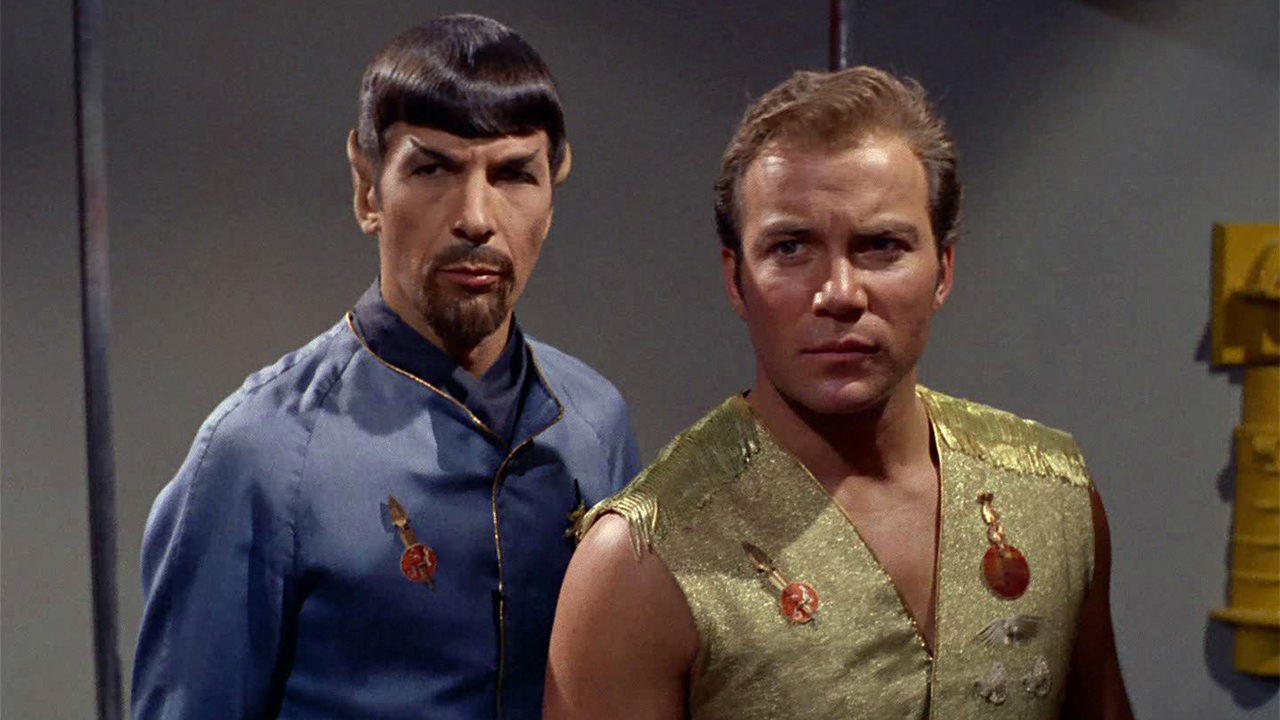TV’s obsession with twists, mysteries, and watercooler elitism is getting unhealthy. Star Trek Discovery is the cure
Focus on proper storytelling is Discovery's secret weapon
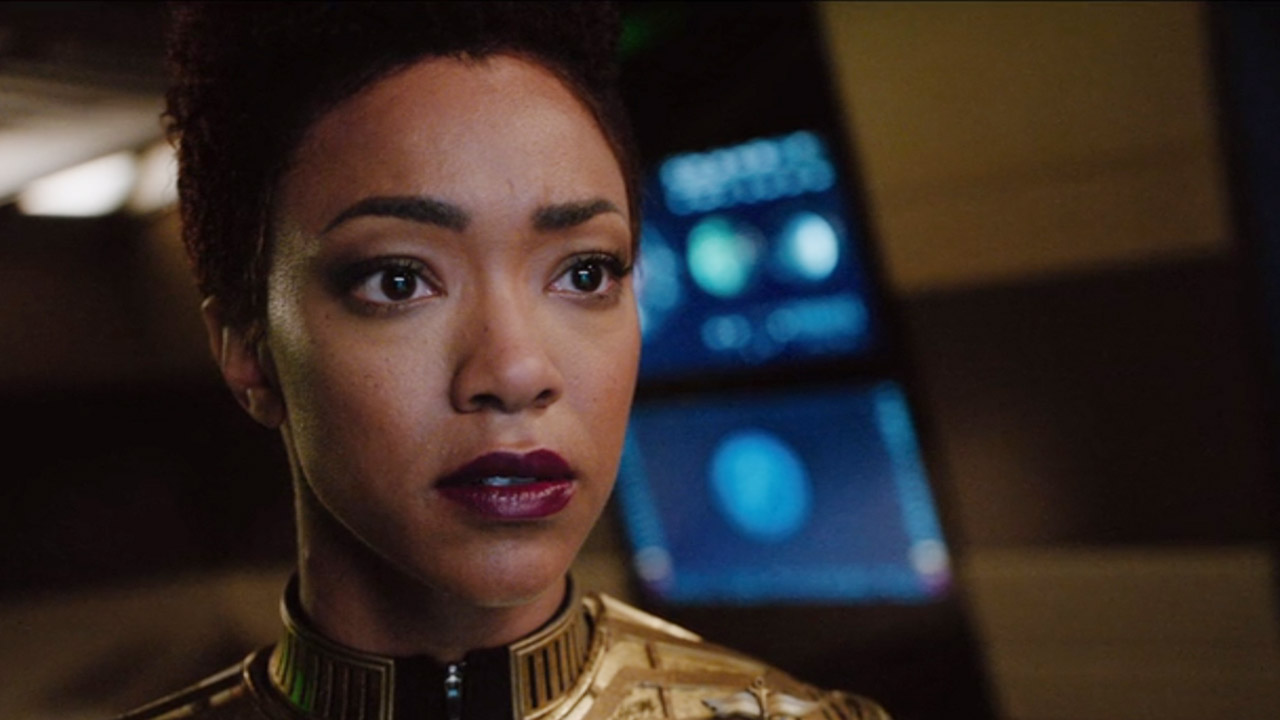
Spoiler warning for all of Star Trek Discovery up until this point. Back out if you're not up to date.
I was worried about Star Trek Discovery’s return before I watched it. I had every faith that the show’s comeback episode, after the mid-season break, was going to be good – Discovery has been nothing but good since the start - but I did fear that this newest, most gritty and adult of Treks was going to let itself down in the overall plot department. I feared that, with the show’s big season 1 twist seemingly long-since guessed by the fandom, and episode 10’s incoming main reveal also pretty obvious, Discovery was suddenly going to look a whole lot less smart and sophisticated unless it pulled a major bait-and-switch out of leftfield.
And if it did that, it might risk feeling disingenuous. Either way it went, I thought, Star Trek Discovery was about to downgrade itself.
I thought this, because modern TV’s sophistication comes from its ability to be endlessly surprising and unpredictable over the long term. I thought this, because the current accepted standard for high-quality TV is to be a relentlessly edge-of-the-seat, unguessable puzzle-box, in which confounding intrigue and a succession of Twitter-scorching ‘Holy shit’ moments are the life-blood. I thought this, because I, like many of us, have become a carrot-chasing idiot, trained into believing all of the above nonsense to be the truth of compelling narrative entertainment, rather than simply garnish and seasoning. I thought this, because I’d lost track of what makes good TV truly good. Like many, I’d got caught up in the ceaseless contemporary rush to stay on top of the latest plot theories and advanced puzzle solutions. I’d become distracted by the demand of modern TV (and its culture of consumption) that I treat stories like jigsaws and logic tests rather than nourishing, emotive experiences, in order to remain truly connected and part of the conversation.
Star Trek Discovery doesn’t pander to any of that. It couldn’t care less about pulling out the rug to prove how clever it is, or about swiftly replacing what you thought you knew with a The Real Clever Actual Truth via a contrived piece of narrative misdirection. As of episode 10, the Discovery has fallen into the long-teased Mirror Universe, just as weeks of unsubtly subtle foreshadowing have led us to believe it would. Tyler is almost 100% definitely the Klingon Voq in disguise, just as we all worked out forever ago. Star Trek Discovery has wilfully failed all the important tests of Sophisticated, Unpredictable TV, and frankly I couldn’t be happier.
Because what Star Trek Discovery gives us, instead of the cheap, short-term thrills of shock plotting and ‘Fuck you’ revelations, is simply a wholesome, enriching bout of good, honest, character-driven storytelling. And I’d forgotten how enjoyable that was.
Shock lasts for seconds. A good story lasts a lifetime
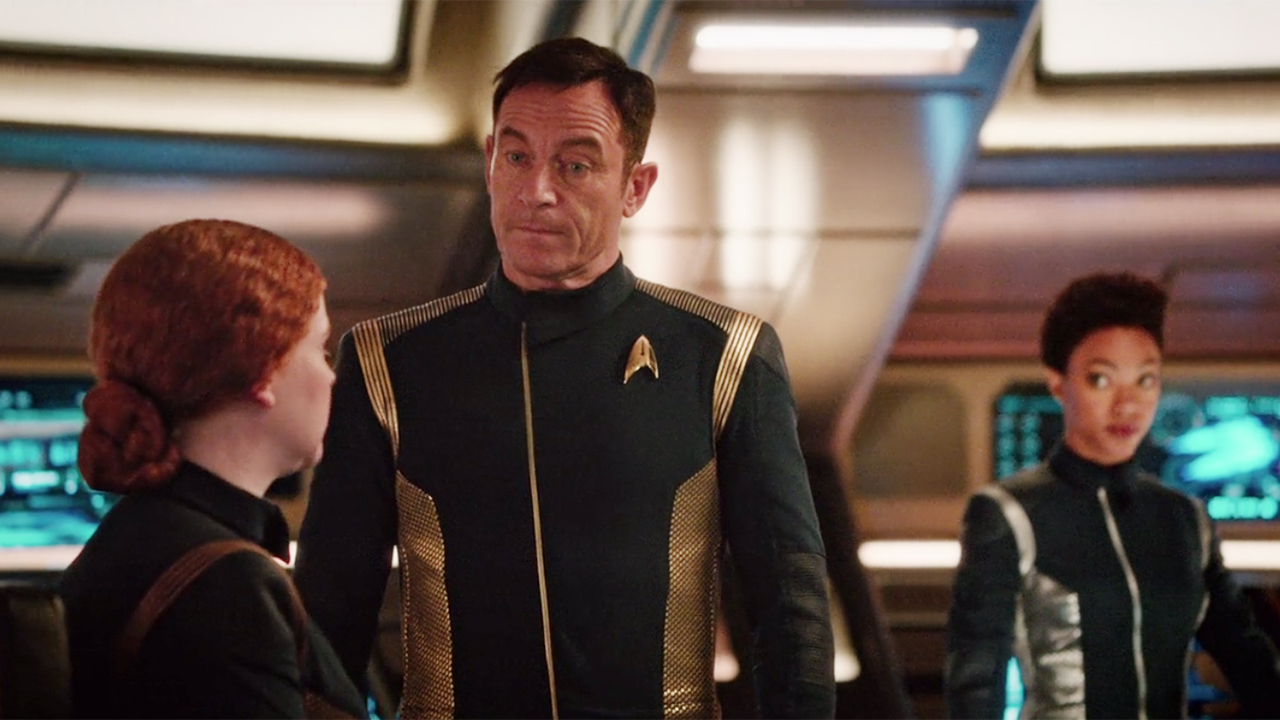
Surely knowing that its big reveals will be guessed by the more engaged parts of the fanbase whatever it does, Discovery has only ever made the most token attempts to build and maintain mysteries. Even the peak contrivance of Voq’s real-world fake casting ploy seemed like a deliberately conspicuous clue. Discovery has never relied on conundrums for its value. And so, rather than building itself around stunts and surprises for its big return, the show doubles down on what it – and Star Trek in general – has always excelled at. Telling an exciting, imaginative, somewhat twisty-turny story driven primarily by warm, witty character moments designed to highlight the personalities and relationships of people you really care about. It unashamedly tells a story we all saw coming. One that it arguably led us to expect, in fact. Discovery’s priority is to tell it well. And in the process, it reminds us that there’s much more value in that approach than in relying on story shock.
Get sneak previews, exclusive competitions and details of special events each month!
Rather than simply allowing the jump to the Mirror Universe to stand out as the episode’s crowning ‘big’ moment, as many other shows would, Discovery almost matter-of-factly confirms the scenario early on, with enough clarity to ensure that everyone is up to speed, and then sets about the actually important business of really exploring the concept with as much verve as possible. As such, episode 10 is drowning in wonderful, imaginative, and affecting moments that wouldn’t be possible otherwise.
There’s the reveal of Mirror Tilly’s status as the nastiest badass in the universe. And the beautiful role reversal, as walking ego Lorca has to coach vanilla Tilly in (fake) capataincy, a sequence filled with warmth as her hidden strength comes to the fore, in parallel with his latent humility and burgeoning care for his crew. We get to see Tyler-Voq’s internal torment hit full tilt after weeks of set-up, the near confirmation of his situation cleared quickly, to allow space for his own steady realisation to put him (and us) through a brutally sustained emotional wringer.
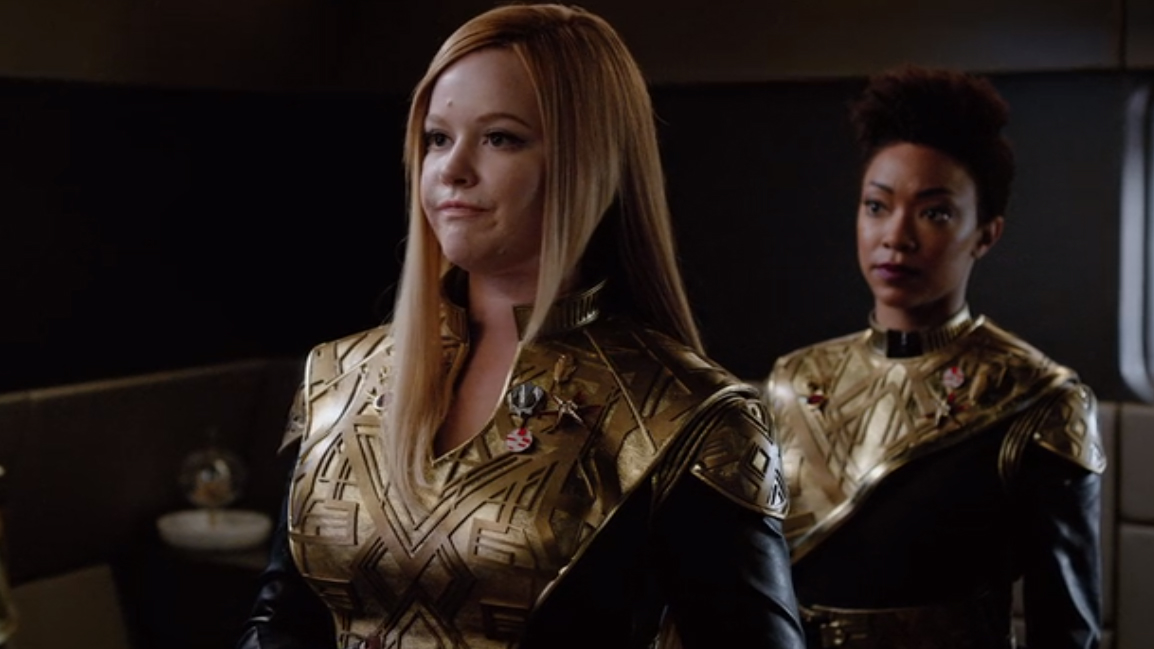
We get plenty of time to explore a full-blown plot, as the Discovery crew waste no time in pulling together with a dramatic and ambitious plan of action. Wonderfully, it’s a plan that lets every character shine in a new, even more rounded way, the necessities of their remixed, danger-fraught situation requiring each to recontextualise and reimagine themselves and their dynamics in order to have a chance at success. There is one harrowing, unexpected death, with the loss of Dr. Culber, but it’s an honest one, a natural shock spinning out from the story’s direction rather than part of some grand scheme of contrivance and intrigue. It shakes us, but it does so on an empathetic human level, not in relation to story puzzles or master theories.
In fact, by creating such a brilliant showcase for fresh, more intimately explored character depths and interactions, Discovery possibly crafts its most authentically Star Trek episode yet. Episode 10 is an exciting rollercoaster of bonkers sci-fi odds, that digs hard into the fundamentals of the human condition and attacks all of its major story threads with a resolute philosophy of pure characterisation. As such, the grand tradition of all good Trek absolutely sings throughout. And Discovery simply wouldn’t be able to do any of that if relying on modern shock-and-awe storytelling. There just wouldn’t be the room.
Puzzle-box storytelling isn’t inherently a bad thing in its own right, of course. Plenty of shows do great, thought-provoking things with it. Last year’s Big Little Lies is a great example. But the problem for me comes when unlocking the mystery box becomes the core reason for watching. Game of Thrones has (almost) always, at heart, thrived on powerful, well-written, character-focused drama, but as the years have gone on, a great deal of that quality has been buried under the show’s growing status as a weekly surprise-death Bingo game. Think about how much time you’ve spent over the years discussing the emotional and intellectual weight of the show’s slow-burn character arcs and defining personal moments, as opposed to playing Guess Who? with the next potential corpse, or joining in with the steady meme-ification of initially powerful scenes. You see part of the issue I have here.
Don't just think about it. Experience it
Think of the mental plate-spinning required by something like Westworld. Westworld, for the record, is one of my favourite TV shows of all time. I adore it for so deftly balancing the emotional and philosophical with a complex narrative, which both resonates with its central themes and amplifies empathy with its characters’ existential turmoil. But again, discussion and appraisal of the show is all too often focused on detached speculation of the what, how, and why, rather than the real richness at its core. And that’s a damn shame. Ever since Lost assaulted mainstream TV with a ceaseless procession of improvised, often meaningless mysteries, and enigmatically empty narrative teases, the culture of TV consumption has been changing.
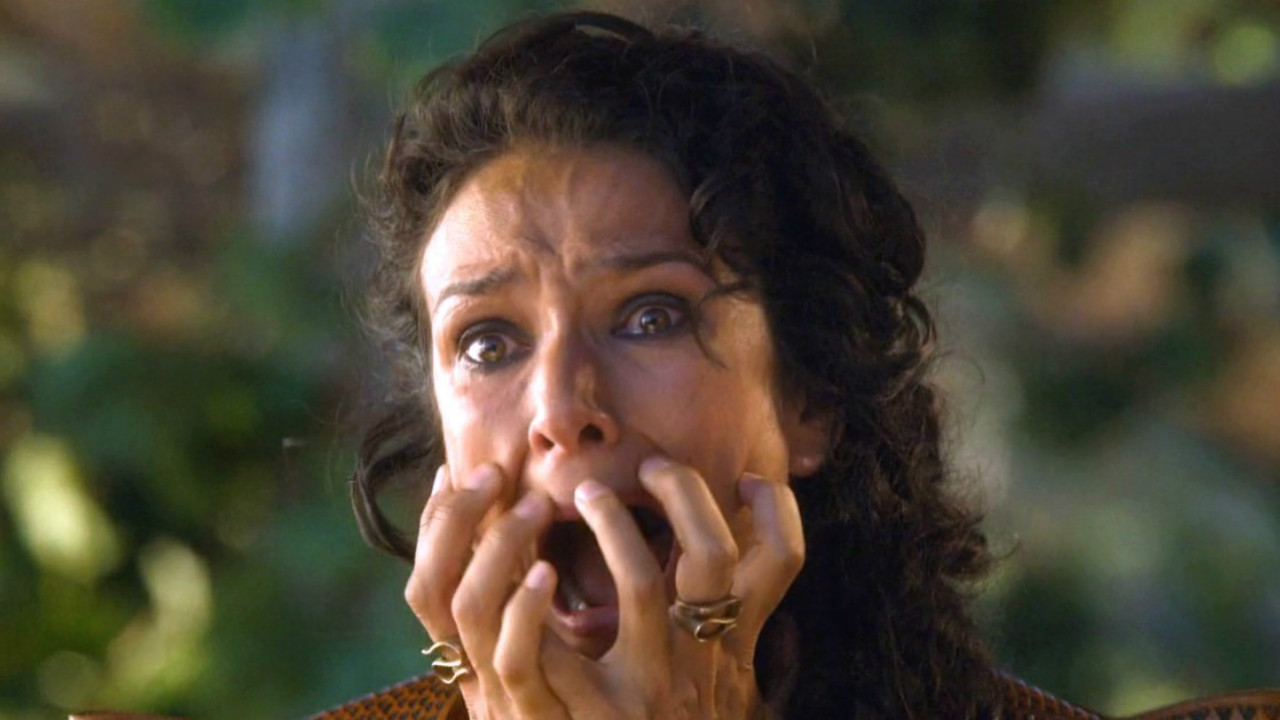
It’s totally understandable that TV shows have been encouraging this shift, of course. In much the same way that video games have been turning to persistent character growth, nailed-on XP systems, DLC season passes, and loot box engagement to keep players coming back for months rather than weeks, mystery-box storytelling is a hell of an effective way of ensuring that viewers get hooked fast and stay that way for whole seasons at a time - and must be a particularly tempting move when a show is advanced in its years. But unless a show has genuinely worthwhile story-craft running underneath all of the psychological retention tricks, you’re always going to be looking at a slightly artificial compulsion. Plenty of crap, free-to-play games hold huge player-bases through manipulative compulsion mechanics despite a lack of meaningful gameplay. I’d hate TV, in this new golden age, to start veering too far in that direction.
Because at times, we do seem to value the intellectual pursuit of deciphering and ‘solving’ a story ahead of time above the experience of enriching ourselves with the immediate journey. We proudly gamify the process of ‘beating’ the writers, while levelling up our Fandom Quality rating not through our ability to enjoy and interpret the fabric and meaning of a work, but by the metric of how quickly we can take it apart. And taken to its nth degree, that just sucks as a means of interacting with a story.
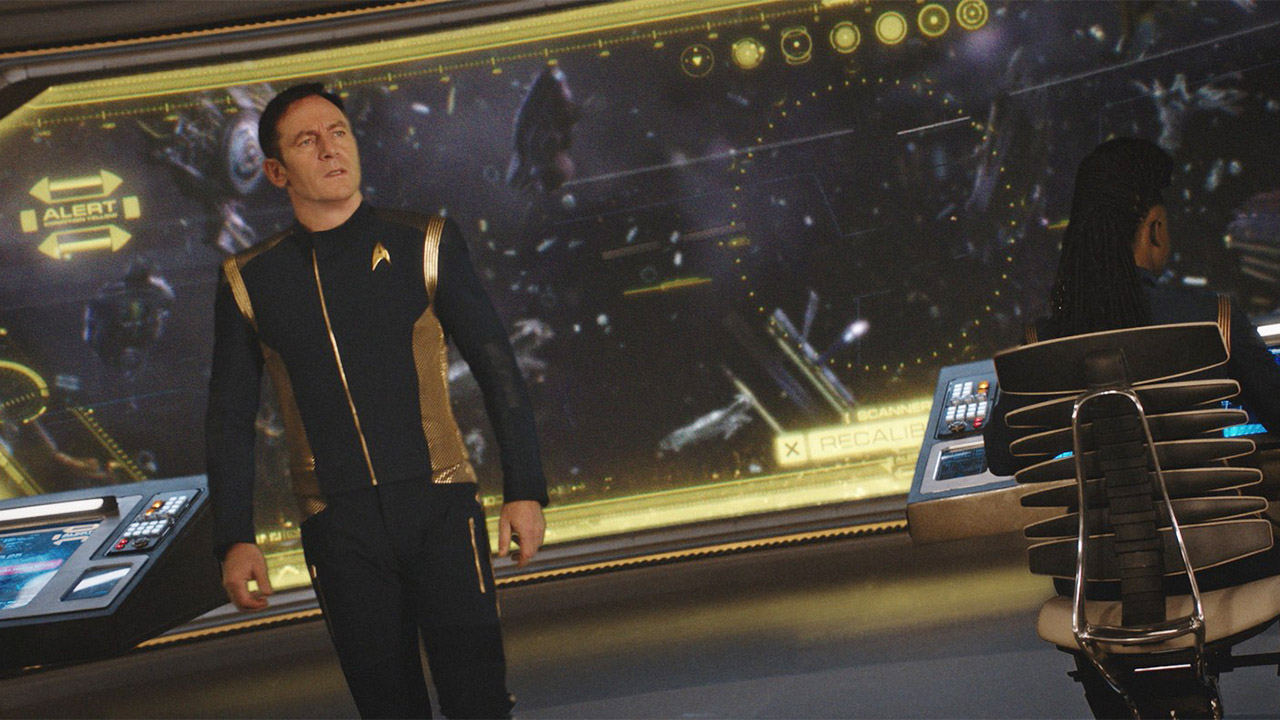
Of course it’s natural to be excited. Of course it’s only healthy and right to talk about and guess around a favourite show with like-minded friends. It’s simply just Really Damn Fun to geek out over the possibilities of character arcs and universes we’re invested in. But when we lose track of why we got invested in the first place, when we drop honest, emotional attachment and the joy of the ride in favour of a cold, analytical ego exercise – often locking in a personal, ‘correct’ canon well ahead of time, and then getting angry when the reality doesn’t match up to what we’d decided was right (hello, Star Wars The Last Jedi) – we just ruin everything. We bury the reasons we used to care, we make the experience about us rather than the story itself, and in the worst extremes we risk bringing a whole lot of toxicity to the experience for everyone.
So nice one, Star Trek. My applause to you for eschewing self-aggrandising mystery reveals and the elitism of narrative jigsaw races in favour of fun, humanity, richness, and in-the-moment thrills. But then, I suppose it only makes sense that the joy of immediacy over long-term prediction would be brought back by a show called Discovery.
